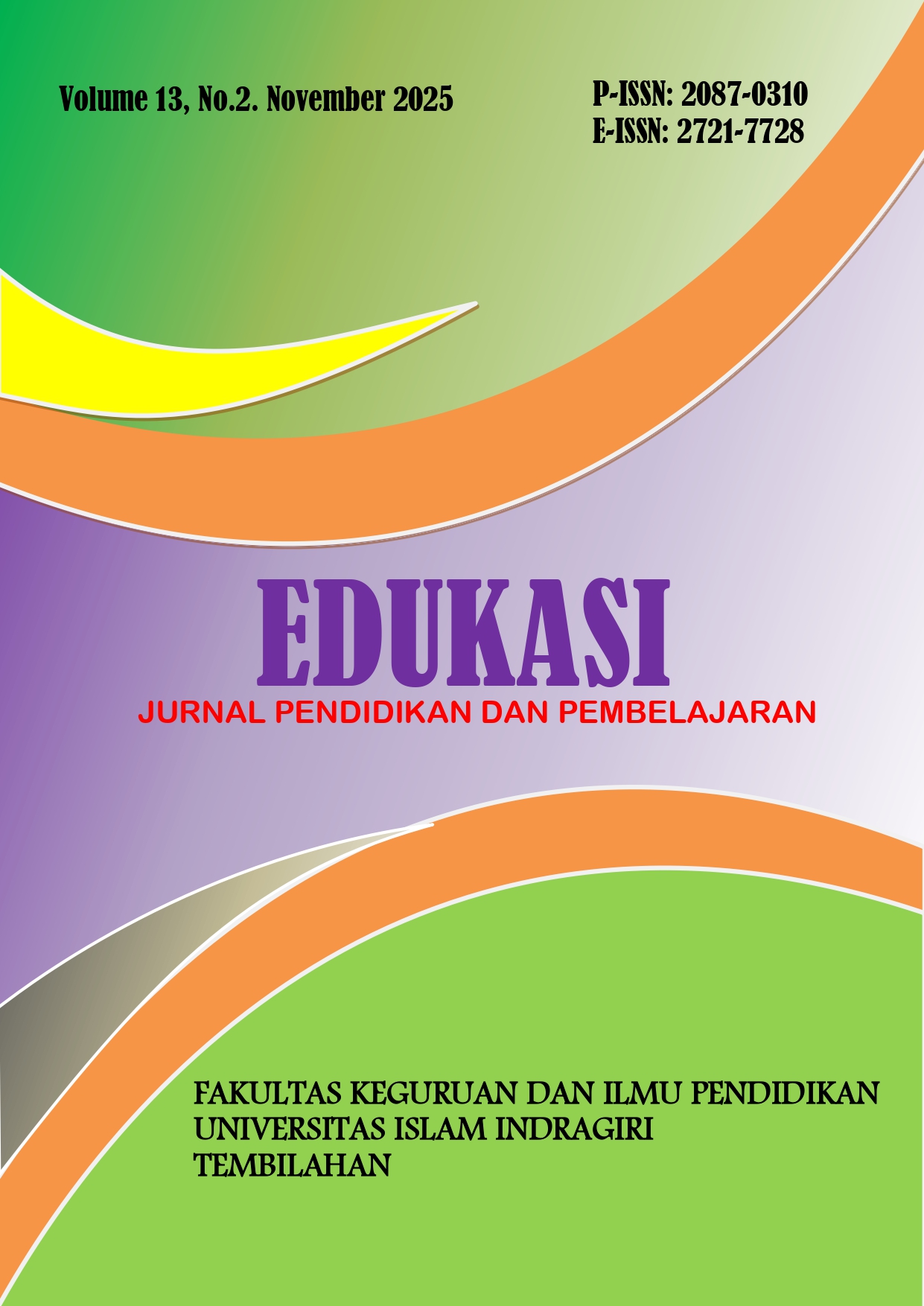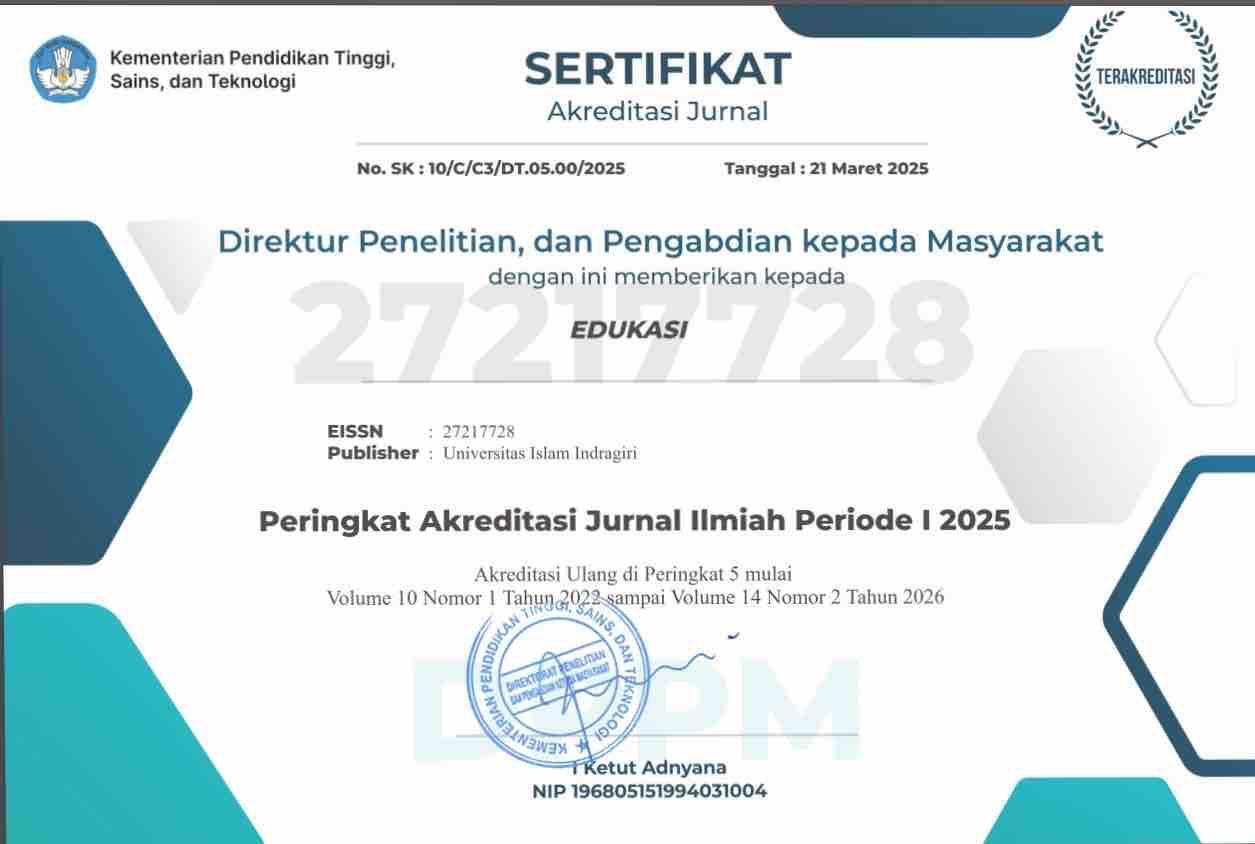Analysis of English Language Empowerment in Foreign Tourist Services to Improve the Economy of Kawah Ijen Trolley Workers in Banyuwangi
DOI:
https://doi.org/10.61672/judek.v13i2.3291Keywords:
english proficiency, Kawah IjenAbstract
Kawah Ijen in Banyuwangi, East Java, is one of Indonesia’s most prominent natural attractions, known for its sulfur crater and the world-famous blue fire phenomenon. Beyond its geological significance, the area illustrates a unique socio-economic transformation in which local sulfur miners have transitioned into tourism service providers, particularly as trolley operators transporting tourists to the crater rim. This study explores the interplay between natural resources, community adaptation, and the role of English proficiency in supporting sustainable tourism. Data were collected through literature reviews, tourism statistics, and expert perspectives. The findings reveal that while tourism provides greater economic opportunities compared to sulfur mining, communication barriers, especially with foreign tourists, pose significant challenges. English language training and community-based capacity building are crucial for enhancing service quality, tourist satisfaction, and long-term sustainability of Kawah Ijen as a world-class destination.
Downloads
References
Ahmad, R., & Parker, L. (2022). Empowering local communities through sustainable ecotourism initiatives. Journal of Community Development Studies, 15(3), 201–219.
Ali, K., & Budi, R. (2020). Rural tourism and sustainable livelihoods: New perspectives in community-based tourism. Journal of Sustainable Tourism, 28(9), 1445–1462.
Andini, P., & Rahman, A. (2021). Geotourism development and sustainability in volcanic landscapes: A case study of Kawah Ijen. Indonesian Journal of Tourism Research, 7(1), 55–70.
Bianchi, R. (2020). Political economy of tourism and sustainable livelihoods in developing countries. Annals of Tourism Research, 85, 102–113.
Bradshaw, C., Atkinson, S., & Doody, O. (2017). Employing a qualitative description approach in health care research. Global Qualitative Nursing Research, 4, 1–8. https://doi.org/10.1177/2333393617742282
Brown, A., & Singh, V. (2025). Last chance tourism: A systematic literature review. Journal of Tourism Futures, 11(1), 33–52.
Carlsen, J., & Hughes, M. (2021). Destination development in volcanic landscapes: Challenges and opportunities. Journal of Sustainable Destination Management, 13(1), 45–63.
Chen, X., & Morales, J. (2021). Positive and negative impacts of tourism revisited: A global analysis. Global Tourism Journal, 9(4), 311–329.
Creswell, J. W., & Guetterman, T. C. (2021). Educational Research: Planning, Conducting, and Evaluating Quantitative and Qualitative Research (6th ed.). Pearson.
Darmawan, S., & Utami, I. (2023). English for Tourism Purposes: Improving communication skills in rural tourism destinations. Asian ESP Journal, 19(4), 79–96.
Dewi, M. K., et al. (2019). The importance of English for tourism village communities. Journal of Tourism Studies, 5(1), 1–10.
Dwyer, L., & Edwards, D. (2021). Tourism adaptation and resilience: A systems approach. Tourism Management Perspectives, 40, 100–118.
Erawan, G., & Nugroho, A. (2020). Local knowledge and ecotourism sustainability in Java’s mountain regions. Journal of Ecological Tourism Research, 8(2), 98–117.
Fennell, D. A. (2020). Ecotourism. Routledge.
Fernandez, R., & Ali, J. (2019). Sustainable tourism development: Revisiting critiques and opportunities. Journal of Sustainable Tourism, 27(5), 721–740.
Garcia, F., & Nakamura, H. (2025). Effects of tourism on well-being: Perspectives from tourists, residents, and governments. Humanities & Social Sciences Communications, 12(1), 1–12.
Garcia, F., & Nakamura, H. (2025). Effects of tourism on well-being: Perspectives from tourists, residents, and governments. Humanities & Social Sciences Communications, 12(1), 1–12.
Giampiccoli, A., & Mtapuri, O. (2020). Community-based tourism and sustainable development: A critical review. African Journal of Hospitality, Tourism and Leisure, 9(1), 1–15.
Hall, C. M., & Lew, A. (2019). Sustainable Tourism: A Global Perspective. Routledge.
Hasan, R., & Rani, M. (2024). Transforming livelihoods through geotourism: Evidence from Southeast Asia. Geotourism Journal, 11(1), 61–83.
Hernandez, J., & Silva, P. (2023). Hospitality and Tourism Demand: Exploring Industry Shifts and Themes. Societies, 14(10), 207.
Hidayat, N., & Amelia, P. (2022). The role of English proficiency in improving tourist satisfaction in local destinations. Journal of Language in Tourism Studies, 6(2), 87–102.
Holden, A. (2020). Environment and Tourism (3rd ed.). Routledge.
Idris, S., & Puspita, D. (2023). Gender perspectives in community-based tourism development. Tourism and Gender Studies Review, 5(2), 119–136.
Jamal, T., & Stronza, A . (2020). Collaboration theory and tourism sustainability. Annals of Tourism Research, 82, 102–121.
Jones, P., & Selby, R. (2021). Ecotourism in protected areas: Policy and practice. Environmental Policy and Tourism Review, 9(3), 212–228.
Kaur, S., & Singh, J. (2022). English for professional communication in the tourism industry. Asian Journal of Applied Linguistics, 9(1), 55–70.
Khan, S., & Patel, D. (2020). Revisiting sustainable tourism: Emerging frameworks and practices. Tourism Geographies, 22(4), 501–518.
Kim, Y., & Torres, L. (2022). Quality assurance and certification in ecotourism: New approaches. Journal of Ecotourism Certification, 6(1), 44–61.
Kurniawan, B., & Smith, C. (2018). Sustainable tourism: Emerging theories and practices. Routledge.
Lai, P.-H., Hunter, C., & Deale, C. S. (2020). Sustainable tourism and social capital: A conceptual framework. Journal of Sustainable Tourism, 28(4), 595–612. https://doi.org/10.1080/09669582.2019.1699041
Lestari, D., & Hardin, T. (2023). Socio-economic impacts of tourism transformation in post-mining communities. Journal of Community Change and Sustainability, 4(1), 44–62.
Lo, J., & Pratama, H. (2021). Global environmental consequences of tourism: A 20-year update. Global Environmental Change, 68, 102–121.
Lopez, M., & Chen, Y. (2022). Enhancing tourism education: The contribution of humanistic management. Tourism Education Review, 10(3), 201–219.
Mbaiwa, J. (2018). The socio-economic and environmental impacts of tourism development in the Okavango Delta. Tourism Management, 68, 449–457.
Mitchell, J., & Ashley, C. (2020). Tourism and Poverty Reduction: Pathways to Prosperity. Earthscan.
Nair, V., & Hamzah, A. (2015). Successful community-based tourism approaches for rural destinations: The Asia Pacific experience. Worldwide Hospitality and Tourism Themes, 7(5), 429–439. https://doi.org/10.1108/WHATT-06-2015-0023
Nguyen, H., & Taylor, S. (2019). Tourism development and environmental sustainability: Beyond greenwashing. Journal of Environmental Tourism, 11(2), 99–117.
Nowell, L. S., Norris, J. M., White, D. E., & Moules, N. J. (2017). Thematic analysis: Striving to meet the trustworthiness criteria. International Journal of Qualitative Methods, 16(1), 1–13. https://doi.org/10.1177/1609406917733847
Nugroho, I., & Negara, D. (2021). Ecotourism and sustainable livelihoods: The case of Banyuwangi. Indonesian Journal of Tourism Studies, 9(2), 33–52.
Nurhadi. (2017). English communication skills in community-based tourism. Indonesian Journal of Applied Linguistics, 7(2), 432–440.
Ozturk, K., & Ahmed, N. (2020). The Tourism Area Life Cycle in the 21st century: Applications and future directions. Journal of Tourism Research, 12(3), 201–220.
Pritchard, A., & Morgan, N. (2019). Tourism, empowerment, and local identity formation. Tourism Studies Quarterly, 7(1), 77–93.
Rahman, L., & Putri, F. (2018). Community empowerment through ecotourism: Case studies in Southeast Asia. Tourism Management, 67, 123–131.
Richards, G., & Hall, D. (2021). Tourism and Sustainable Community Development. Routledge.
Rodriguez, E., & Lee, C. (2021). Marketing in travel and tourism: Digital innovations and strategies. Journal of Travel Marketing, 38(2), 233–251.
Santoso, D., & Ibrahim, M. (2019). Cultural tourism and community participation in the digital era. Cultural Tourism Journal, 5(2), 88–104.
Sari, L., & Hartono, B. (2024). Language and sustainability in tourism education: A transformative approach. Journal of English for Specific Purposes and Sustainability, 12(2), 91–107.
Scheyvens, R. (2018). Tourism for Development: Empowering Communities. Channel View Publications.
Singh, R., & Abdullah, N. (2019). Cultural tourism in a changing world: Digital participation and representation. Cultural Tourism Review, 7(3), 145–161.
Smith, J., & Lee, R. (2023). Exploring the nexus of smart technologies and sustainable ecotourism: A systematic review. Journal of Ecotourism Studies, 18(2), 112–130.
Stone, M. T., & Nyaupane, G. P. (2018). Protected areas, tourism, and community livelihoods linkages: A comprehensive analysis. Journal of Sustainable Tourism, 26(6), 1–17.
Sutopo, D., & Karim, F. (2022). The integration of local wisdom in ecotourism management: Lessons from Indonesia. Journal of Sustainable Cultural Tourism, 10(3), 125–143.
Tanaka, H., & Morris, G. (2020). Tourism, recreation and sustainability: Linking culture and the environment in the modern era. Sustainability in Tourism, 14(2), 177–192.
Tosun, C. (2021). Limits to community participation in the tourism development process. Tourism Management, 52, 1–12.
UNWTO (World Tourism Organization). (2021). Tourism and Rural Development. Madrid: UNWTO.
Wang, T., & Gonzalez, P. (2023). Research Progress on the Role of Education in Tourism and Hospitality: A Bibliometric Analysis. Journal of Hospitality Education, 15(1), 45–62.
Weaver, D. (2023). Sustainable tourism futures: Balancing economy, ecology, and equity. Journal of Tourism Research and Policy, 19(2), 145–168.
Williams, K., & Omar, S. (2017). Consumer behavior in travel and tourism: Trends and transformations. Journal of Travel Research, 56(6), 789–804.
Yanti, N., et al. (2024). English training for sustainable tourism services. Journal of Language and Tourism Development, 12(1), 55–66.
Yusuf, I., & Hakim, S. (2017). Barriers and opportunities in community participation for tourism development in developing countries. Tourism Management Perspectives, 24, 117–126.
Zhou, L., & Martin, E. (2025). Digital twins in tourism: A systematic literature review. Journal of Tourism Technology, 15(2), 77–96.








